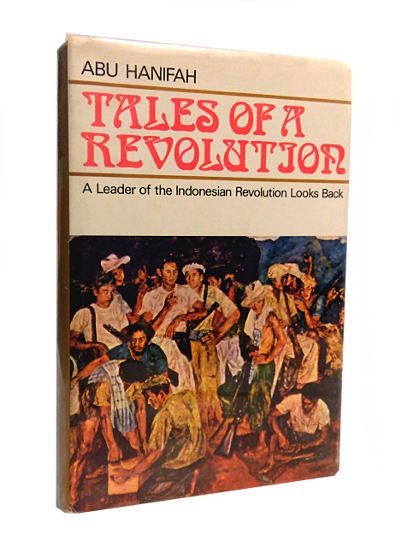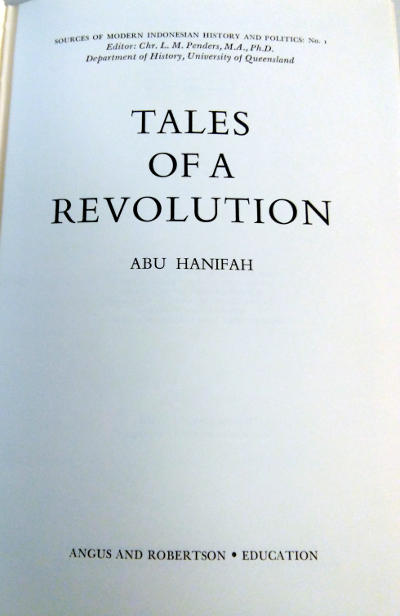From jacket flap:
The national struggle which culminated in the declaration of Indonesian independence from Holland was led by a remarkably small group of intellectuals. As a member of this elite, Abu Hanifah was familiar with most of its members, very few of whom have previously recorded their experiences (Sukarno’s autobiography an exception). His memoirs consequently provide exceedingly important insights into the values and attitudes of individuals whose decisions and actions were of critical importance to the future of the Republic of Indonesia – Sukarno, Hatta, Sjahrir, Musso, Amir Sjarifuddin (Hanifah’s political rival and friend of student days), and many others. At the same time his lively descriptions of day-to-day incidents involving his family, friends, followers and enemies evoke the substance and psychology of the day-to-day life of a colonised people under Dutch domination.
Like many of his revolutionary comrades in arms, Abu Hanifah felt that Sukarno betrayed the true ideals of the Revolution and he gives here the most comprehensive description and analysis of Sukarno so far presented by an Indonesian in English. Dr Hanifah was able to reconcile his own patriotism with a belief in western-style modernisation, socialism and progressive Islam. However, the strong nativistic feeling which predominated among his colleagues at the time of independence prevented him from putting his belief into practice. Consequently, throughout the book, disappointment counterpoints his exultation at the victory of the Revolution.



